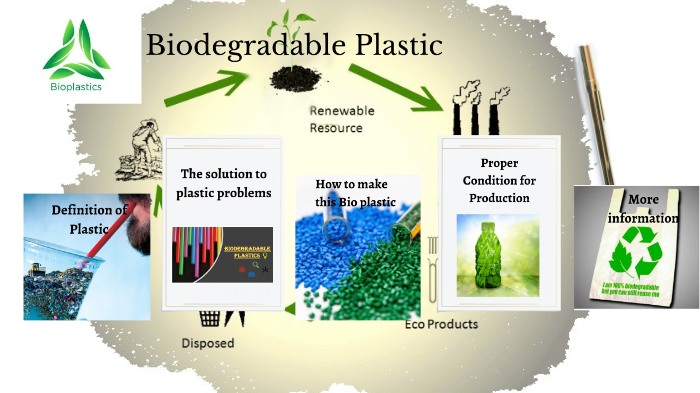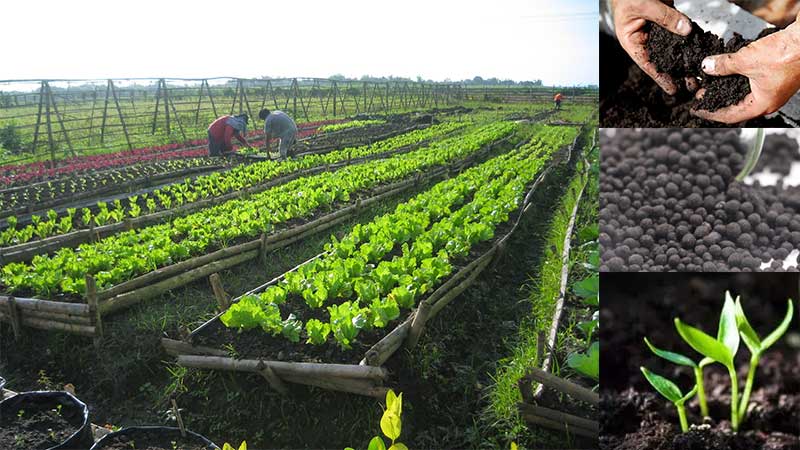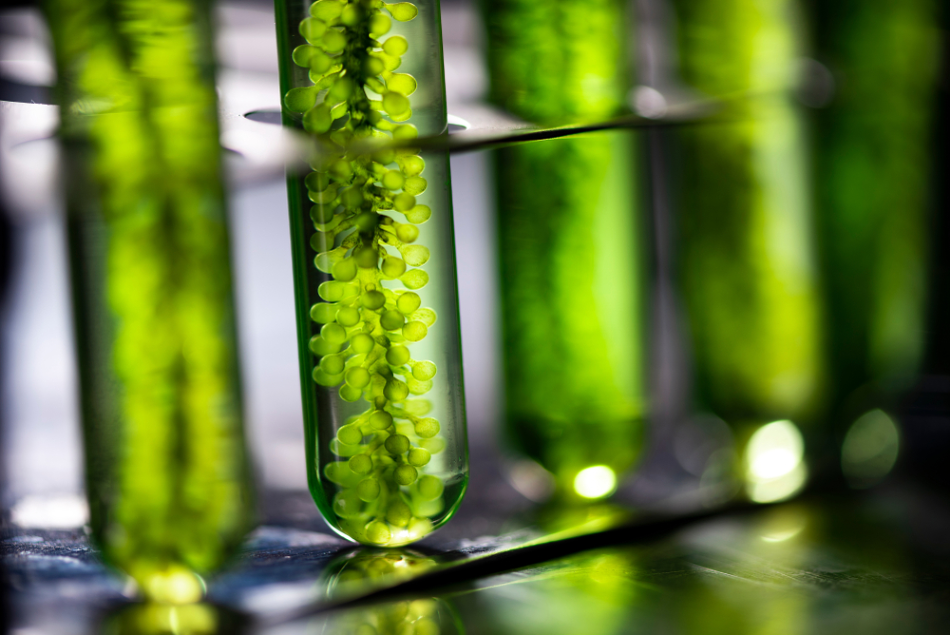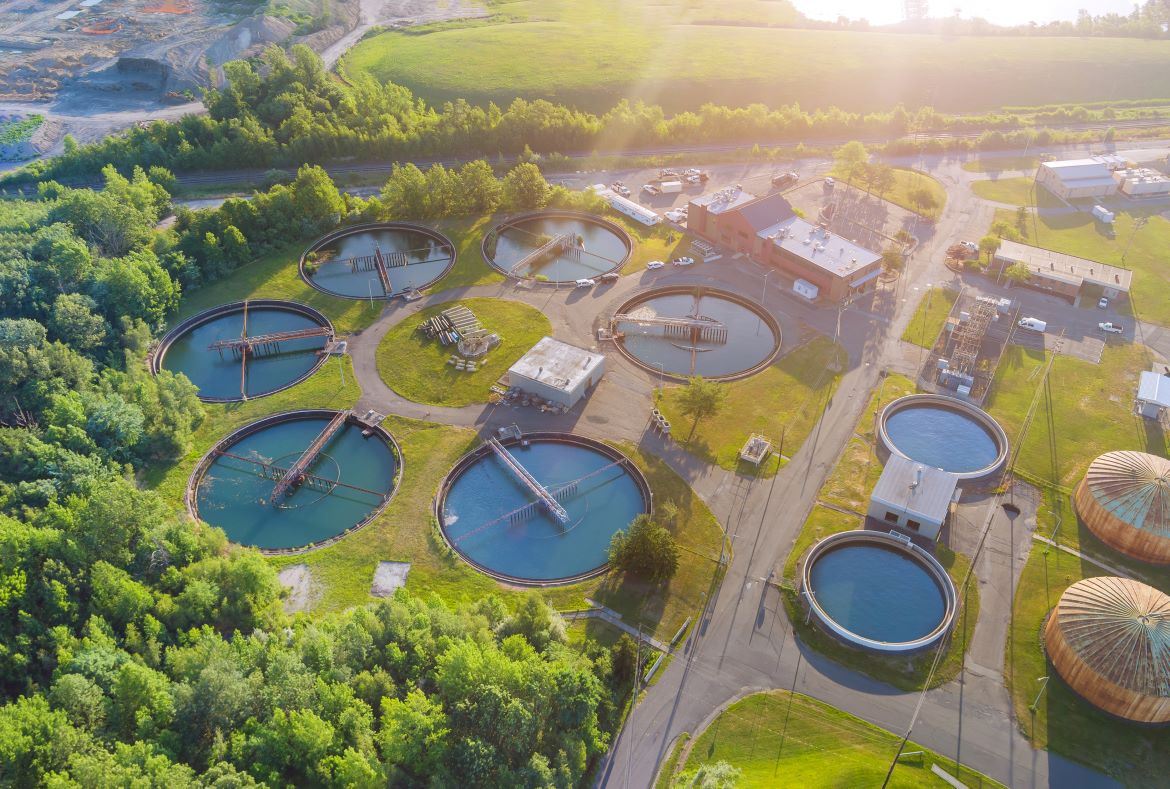Unleash the potential of eco-friendly biochemical business and be a part of the green revolution. As the world becomes more conscious of its environmental impact, ecologically safe business ideas are increasingly popular. And let’s face it, what could be more perfect than harnessing the power of biochemicals to create sustainable and environmentally conscious ventures?
Here are five eco-friendly biochemical business ideas that could be profitable and beneficial for the environment.
Related: Will Greening Businesses Ever Rule The World?
1. Biodegradable Plastic Production

Traditional plastic is not biodegradable and can take hundreds of years to decompose. On the other hand, biodegradable plastics can break down much quicker and are made from natural materials such as starch and cellulose. Starting a business that produces biodegradable plastic could help reduce plastic pollution.
It is a type of plastic that can break down, decompose and return to the environment. These plastics are made from natural materials such as starch, cellulose, and other renewable resources, unlike traditional plastics derived from fossil fuels and are not biodegradable. Biodegradable plastics offer a sustainable solution to the problem of plastic pollution, which is a growing concern for the environment.
The production of biodegradable plastics starts with the selection of raw materials. These raw materials are usually derived from renewable resources such as corn and cassava. Then, it is processed and converted into polymers through chemical reactions. These polymers produce shopping bags, cutlery, food packaging, and medical equipment.
One of the most significant advantages of biodegradable plastics is their ability to break down in the environment. These plastics can be broken down by microorganisms such as bacteria and fungi, which can convert them into carbon dioxide, water, and biomass. In comparison, traditional plastics can take hundreds of years to decompose and often end up as litter in landfills and oceans, causing harm to the environment.
Related: Waste Management Business: Top 10 Innovative Ideas
Another benefit of biodegradable plastics is that they are often compostable, meaning they can be added to compost piles and will break down in the presence of oxygen, heat, and microorganisms. This process produces a rich organic material that can be used as a fertilizer for the soil.
There are, however, limitations and challenges to biodegradable plastics. One of the significant challenges facing the industry is that biodegradable plastics are often more expensive to produce than traditional plastics. Moreover, the decomposition process of biodegradable plastics depends on the environment, and specific conditions such as temperature and moisture levels must be met to decompose.
Despite these challenges, the demand for biodegradable plastics is increasing, and they are expected to play an essential role in the future of sustainable packaging. In addition, new technologies are being developed to make the production of biodegradable plastics more efficient and cost-effective, making them more accessible to the public.
Biodegradable plastic production is a sustainable and profitable business. With the increasing awareness about the environmental impact of traditional plastics and the growing demand for sustainable solutions, the market for biodegradable plastics is expected to grow. By producing biodegradable plastics, companies can help mitigate the problem of plastic pollution and contribute to a more sustainable future.
2. Organic Fertilizer Production

Conventional fertilizers can harm the environment and pollute soil and water. An organic fertilizer production business could be a great alternative, using natural materials such as compost and manure to produce nutrient-rich soil.
It is a sustainable and environmentally friendly alternative to traditional chemical fertilizers. Organic fertilizers are made from natural materials such as compost, manure, and other organic matter and are designed to provide essential nutrients to plants while improving soil quality.
The production of organic fertilizer starts with the collection and processing of raw materials. These raw materials can include various materials, such as food waste, leaves, grass clippings, and animal manure. The raw materials are mixed together and decompose, usually through composting. Composting occurs over several weeks or months when microorganisms break down the organic matter and convert it into a nutrient-rich soil amendment.
One of the main benefits of organic fertilizers is that they are entirely natural and do not contain any synthetic chemicals. It means that they are not harmful to the environment and are safe for use around humans and animals. Additionally, organic fertilizers improve the structure and fertility of the soil and can increase its water-holding capacity.
Organic fertilizers also promote biodiversity because they contain various microorganisms and beneficial insects. This contrasts chemical fertilizers, which can negatively impact soil microbiology and may lead to the displacement of native organisms and insects.
Another benefit of organic fertilizer production is that it is a great way to recycle and repurpose organic waste materials. A fertilizer production business can turn food waste, leaves, and grass clippings into a functional and valuable product that can be sold to farmers, gardeners, and other consumers.
However, as with any business, some challenges need to be considered; one of them is the time necessary to produce organic fertilizer, as decomposition usually takes longer than that of chemical fertilizers. Additionally, the cost of raw materials, equipment, and labor can be high, making producing and selling competitively challenging.
Despite these challenges, organic fertilizer production is a profitable and sustainable business with growing demand. The increasing awareness about the environmental impact of chemical fertilizers and the desire for natural and sustainable products is driving the market for organic fertilizers. By producing organic fertilizers, companies can help farmers and gardeners improve their soil’s health and the quality of their crops while contributing to a more sustainable future.
3. Algae-based Biofuel Production

Algae-based biofuels are a sustainable alternative to traditional fossil fuels. Algae is a fast-growing organism that can grow in various conditions, making it an efficient fuel source. Starting a business that produces algae-based biofuels could be a great way to reduce dependence on fossil fuels.
Algae-based biofuels are a sustainable alternative to traditional fossil fuels. They are made from microalgae, a aquatic plant that can be grown quickly and in various conditions. Algae-based biofuels have several benefits over fossil fuels, including being renewable and carbon neutral, which make them an attractive alternative to traditional fuels.
The production of algae-based biofuels starts with the cultivation of microalgae. Algae can be grown in outdoor ponds and indoor photobioreactors, using sunlight or artificial lighting as the energy source. The algae are grown in water, enriched with nutrients such as carbon dioxide and nitrogen to promote their growth.
Once the algae are developed, they are harvested and processed to extract the oil used to make biofuel. Removing the oil from algae can vary depending on the type of algae and the method used. Standard methods include mechanical extraction, solvent extraction, and pressurized liquid extraction.
One of the main benefits of algae-based biofuels is that they are renewable and sustainable. Unlike fossil fuels, which are limited in supply and contribute to greenhouse gas emissions, algae can be grown continuously. The carbon dioxide absorbed during their growth is rereleased when the biofuel is used, making the process carbon neutral.
Another benefit of algae-based biofuels is that they can be grown in various conditions, such as saline or wastewater, making them suitable for use in regions where freshwater resources are scarce. Algae can also be developed using wastewater, which makes it an efficient way to treat and recycle water while producing biofuel.
However, as with any new technology, some challenges must be considered. One of the main challenges facing the algae biofuel industry is the cost of production. Algae-based biofuels are currently more expensive to produce than traditional fossil fuels. Another challenge is that, while algae are relatively fast-growing and thus can provide large quantities of biofuel, scaling up the production to the industrial level is a complex process and still needs much more research and development.
Despite these challenges, the algae biofuel industry is growing, and algae-based biofuels are expected to play an essential role in the future of sustainable energy. As the world continues to face the challenges of climate change and the need for renewable energy sources increases, algae-based biofuels have the potential to become a significant source of sustainable energy.
4. Biotechnology for Clean Water

Water scarcity is an issue that is becoming more pressing as the population continues to grow. Starting a business that uses biotechnology to clean water could help alleviate this problem. Biotechnology techniques, such as using bacteria to break down pollutants, can be highly effective in purifying water.
Clean water is an essential resource for life, and a scarcity of clean water is a growing concern worldwide. Biotechnology offers a range of solutions for cleaning water and making it safe for human consumption and other uses. Biotechnology for clean water involves applying various biological processes and organisms to purify water and remove pollutants.
One of the most common methods of biotechnology for clean water is the use of bacteria. Bacteria can break down pollutants such as organic matter and make the water safer for human consumption. This process is known as bioremediation, and it can be done by using bacteria, such as bioreactors, in both natural and artificial environments.
Another method of biotechnology for clean water is the use of algae. Algae can remove pollutants such as nitrogen and phosphorus from water. This process is called algal remediation, and it can be done by growing algae in ponds, tanks, or photobioreactors and then harvesting the algae to remove pollutants.
A third method is the use of fungi to remove contaminants from water. Fungi can break down many pollutants, including heavy metals and toxic organic compounds. This process is called mycoremediation, and it can be done by introducing fungi into the water and allowing them to break down the pollutants.
One of the main benefits of biotechnology for clean water is that it is a natural and sustainable way to purify water. Unlike traditional chemical methods, which can harm the environment and human health, biotechnology uses biological organisms and processes to clean water.
Additionally, biotechnology methods are often less expensive than traditional chemical methods and can be more effective in removing specific pollutants.
However, as with any new technology, some challenges must be considered. One of the main challenges facing the use of biotechnology for clean water is that it can be difficult to control the growth and spread of the organisms used in the purification process.
Additionally, while biotechnology can remove many types of pollutants, it may not be effective against specific contaminants.
Despite these challenges, biotechnology for clean water is an important and growing field with the potential to impact providing clean water significantly. As the world population continues to grow and the demand for clean water increases, biotechnology can play a crucial role in addressing this challenge for human consumption and preserving the environment.
5. Green Chemistry Consulting

Green chemistry is an emerging field that focuses on creating chemical processes that are less harmful to the environment. A business that provides consulting services for companies looking to implement green chemistry practices could be a profitable venture.
It is a field that focuses on creating chemical processes and products less harmful to the environment. Green chemistry is an emerging field that offers significant potential For companies looking to reduce their environmental footprint and improve their sustainability.
Green chemistry consulting is a service that helps companies adopt these practices in their operations. Green chemistry consulting typically assesses the company’s current chemical processes and products. This assessment is used to identify areas where the company can make improvements and reduce its environmental impact. It could include identifying safer and more sustainable alternatives to their current chemicals or implementing more efficient processes that use fewer resources and generate less waste.
One of the main benefits of green chemistry consulting is that it can help companies reduce their environmental impact and improve their sustainability. Green chemistry practices can lead to the development of more environmentally friendly products and processes, which can help companies comply with regulations and meet consumers’ expectations of becoming more conscious of the environmental impact of the products they buy.
Another benefit is that Green chemistry can help companies save money in the long run. Companies can reduce their raw materials and waste disposal costs by developing more efficient and sustainable processes. This can also reduce their risk of non-compliance with regulations, which can carry high fines.
However, as with any new technology or process, some challenges must be considered. One of the main challenges facing companies implementing green chemistry is the cost of change. The process can be complex and require significant investments in new equipment and personnel.
Moreover, while green chemistry can reduce the environmental impact of the products, it is not the only solution and can be a piece of the puzzle to addressing environmental concerns.
Despite these challenges, green chemistry consulting is an important and growing field with the potential to impact the environment and the company’s bottom line significantly. As the world becomes more conscious of the impact of human activity on the environment, companies are under more pressure to adopt sustainable practices. Green chemistry consulting can help companies reduce their environmental impact and improve sustainability while lowering costs and increasing efficiency.
Conclusion
The demand for sustainable products and services is growing as society becomes more aware of the environmental impact of traditional chemical production methods.
Biochemistry, as a field, has the potential to make a significant contribution to the development of sustainable products and services.
Eco-friendly biochemical business ideas can help reduce the use of non-renewable resources and decrease pollution while creating new jobs and economic opportunities. They also offer a solution for managing and valorizing waste, reducing environmental impact by converting it into resources for further use.
In addition, biochemistry can also play a crucial role in the research and development of new technologies, such as advanced bioprocessing techniques, which can make the production of biochemicals more efficient and cost-effective. This can scale up the production of sustainable products, making them more widely available and affordable to consumers.
Overall, eco-friendly biochemical business ideas have great potential to positively impact the environment and economy. It is a way of protecting the environment and creating new opportunities for businesses and industries to thrive.

[…] Article: 5 Eco-Friendly Biochemical Business Ideas For a Greener Future […]
[…] Article: 5 Eco-Friendly Biochemical Business Ideas For a Greener Future […]
[…] Article: 5 Eco-Friendly Biochemical Business Ideas For a Greener Future […]